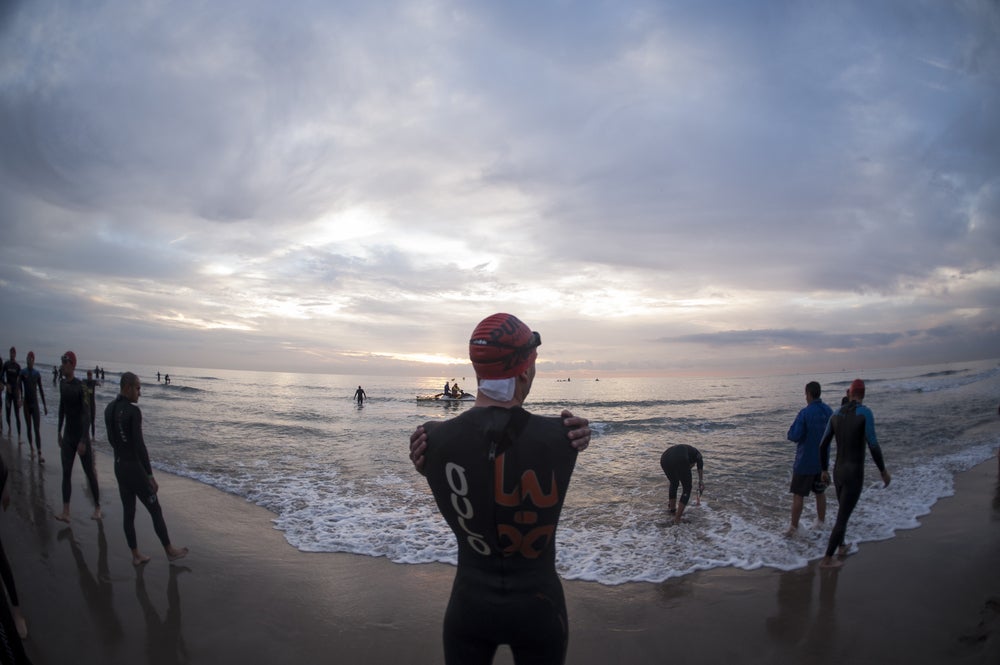Conquer Your Open-Water Fear

Photo: <a href="http://www.shutterstock.com/gallery-1194761p1.html?cr=00&pl=edit-00">Francesc Juan</a> / <a href="http://www.shutterstock.com/editorial?cr=00&pl=edit-00">Shutterstock.com</a>
Discomfort in the open water is very common. Whether it is a panic attack in the middle of the course, fear of the “Creature from the Black Lagoon,” or simply an aversion to dark and murky water, you are not alone. Anxiety is normal among athletes at all experience levels. The answer to conquering your fear lies in your pre-race training, mental preparation, and creating and utilizing a personal race strategy.
RELATED: Three Essential Open-Water Survival Tips
Consider these strategies:
• Mimic the chaos of open water by swimming with a large group in the pool. Share a lane with other swimmers where you’ll be forced to make contact, and swim side-by-side to become more comfortable.
• Practice in open water as often as possible. Gather a group of training partners for a trip to the beach and attend any open water clinics in your area. Take advantage of every opportunity to swim in your wetsuit to get accustomed to constriction around your neck, shoulders and torso.
• Use visualization to mentally prepare. Imagine stressful situations that can occur and think about staying calm, controlling your breathing and continuing to swim forward.
• Compose a personal race-day strategy that helps you maintain confidence. Cut out all negative self-talk, use calm and deep yoga breaths when you feel anxious, familiarize yourself with the race course and positions of safety personnel, and position yourself at the back or outside of your start wave.
Even with the best preparation and practice, you might still suffer a panic attack during the race. If that happens, just move away from other swimmers, roll on your back and focus on breathing and lowering your heart rate. Resume the event if you feel confident to continue. Stop and seek medical help if you experience chest pain/discomfort, light-headedness or an unusually high heart rate.
RELATED: Fearful Of The Open Water? Try Hypnotism
Follow Triathlete on Twitter @Triathletemag for inspiration, new workout ideas, gear reviews from our editors and more.